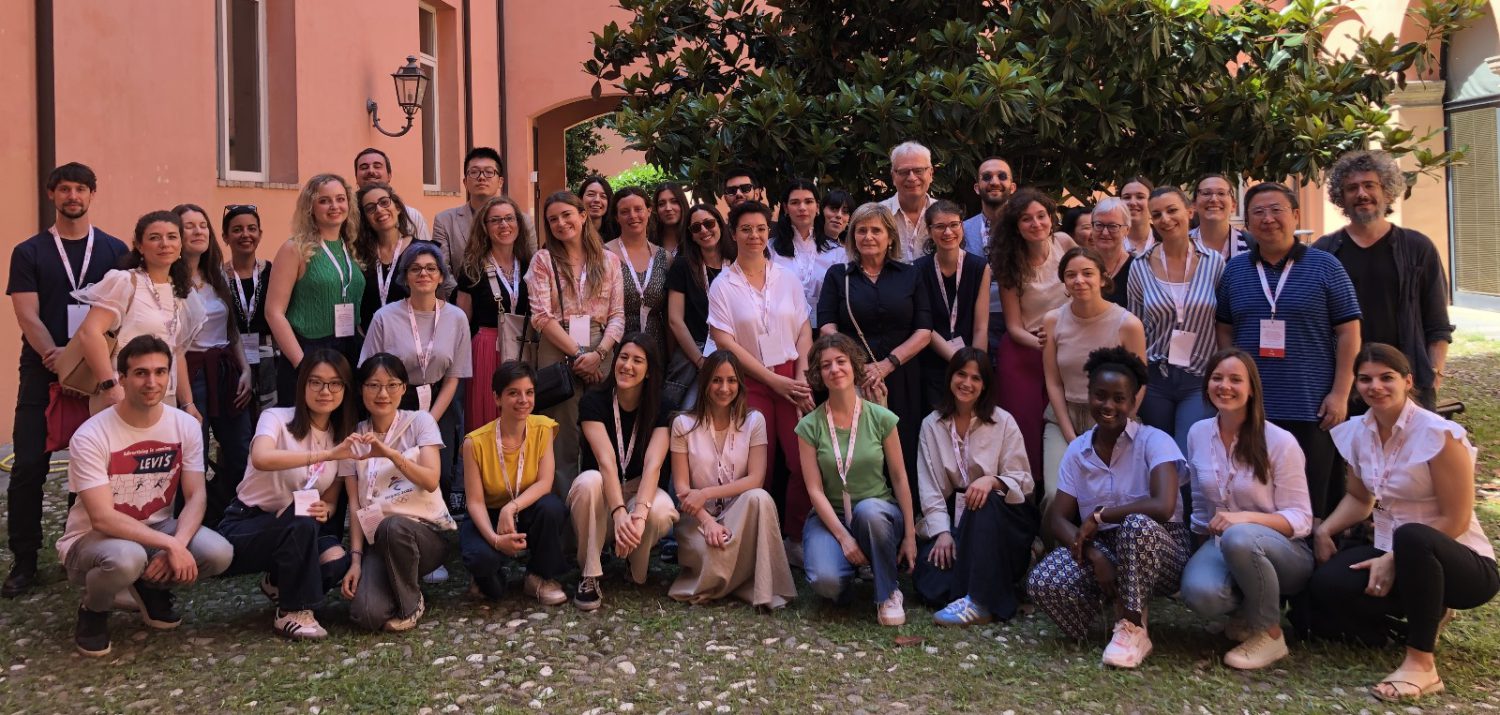Philip Cooke is Professor of Italian History and Culture at the University of Strathclyde and Chair of ASMI (Association for the Study of Modern Italy). He has been a visiting Professor at the University of Padua and at UNIMORE. His research interests have centered on the long-term impact of the Italian Resistance movement and, more generally, on 20th Century Italian social and cultural history, with an interest in the interaction between history and culture and in the ‘political use of history’. More recently, he has worked on the history of science and medicine in Italy in the 18th and 19th century from a transnational perspective.
Cristoph Draxler is a Privatdozent at the Institute of Phonetics and Speech Processing at the Ludwig-Maximilian University in Munich. His research interests concern Webtools for phonetic research, Speech databases and perceptive-acoustic dialectology. He publishes and works intensively at the Bayerisches Archiv für Sprachsignale (BAS) Web Services (CLARIN-D), developing and testing new Webtools. He teaches in BA and MA courses at the IPS and regularly takes part in numerous conferences all around the world.
Matteo Fuoli is Associate Professor in the English Language and Linguistics Department at the University of Birmingham (UK). His research draws on an interdisciplinary mix of corpus, experimental and data science methods with discourse analysis to study the linguistic mechanisms at the heart of important social issues, such as trust, polarization and climate change. He has undertaken extensive research in the field of business communication, specifically focusing on corporate social responsibility, crisis communication, and webcare. He tweets @MatteoFuoli.
Gabriel Hankins is an Associate Professor of English at Clemson University, and series co-editor of the Cambridge Elements in Digital Literary Studies. He is the lead editor on Digital Futures of Graduate Study in the Humanities (University of Minnesota Press, 2024), and is preparing the Cambridge Introduction to Digital Humanities. He is preparing special issues on “AI and/as Form” (CLCWeb) and “Digital Humanities, Labor, and Political Economy” (Journal of Interactive Technology and Pedagogy). His research takes up questions of multimodal and transdisciplinary publication in the era of multimodal AI, as well as left critique and political economy, psychoanalytic cultural studies, modernist collectivity, and the making of literary color.
Marcus Müller
Marcus Müller is Professor of German Studies – Digital Linguistics at the Department of Linguistics and Literature, Technische Universität Darmstadt. His research interests include corpus linguistics, discourse analysis, and language and art. Marcus Müller leads the Discourse Lab, a research platform for digital discourse analysis. Current work focuses on empirical terminology research, public risk discourses in Germany and the UK, and heuristic practices in academic discourse.
Wu Ping is a Full Professor of Linguistics at Beijing Language and Culture University (BLCU), where he heads the Program in Linguistics and Applied Linguistics. Focusing on intercultural communication, particularly on how contemporary Chinese literature is translated into and received by other cultures, his research is based on the analysis of historical and social contexts, as well as multi-modal and para-text information. He currently works on the theory of intercultural metaphor and its application.
Massimo Riva is Professor of Italian Studies and Modern Media at Brown University. He is the author of several books on melancholy and other literary maladies in the eighteenth and nineteenth centuries, post-humanism and the hyper-novel, and the future of literature in the digital age. He is the editor of Italian Tales, an anthology of contemporary Italian fiction, published by Yale University Press, and the co-editor of the Cambridge U.P. edition of Giovanni Pico della Mirandola’s Oration on Human Dignity. Since the late 1990s, his pioneering work in the digital humanities has led to the creation of award-winning projects, including the Decameron Web, the recipient of two major grants from the National Endowment for the Humanities, the Virtual Humanities Lab, recipient of a two-year NEH grant, and the Garibaldi Panorama and the Risorgimento Archive, recipient of a Digital Innovation award from the American Council of Learned Societies. For his engagement with research-based teaching, he was nominated Royce Family Professor of Teaching Excellence. His most recent project is a digital monograph entitled Shadow Plays. Virtual Realities in an Analog World, published in June 2022 by Stanford University Press and the winner of a PROSE prize from the Association of American Publishers in the category of e-publications.
Josef Schmied is Emeritus Professor of English Language & Linguistics, concentrating on his research projects and international teaching on Academic Writing & Publishing and Digital Innovation in Language Teaching. He taught at Chemnitz University of Technology from 1993-2021, developed the International Corpus of English, East Africa and published English in Africa ( Longman 1991). He likes to work in international projects, in Summer Schools and as Guest Professor, e.g. in Guangzhou/China in 2015 and 2024 and in Modena/Italy in 2019 and 2022. Current projects focus on constructing an agent that speaks non-standard Englishes (CRC 1410 Hybrid Societies) and digital methodologies using AI tools.
Janina Wildfeuer is a #multimodalist with a multi-faceted background in linguistics, semiotics, and discourse analysis who has about 15 years of experience in working with visual and audiovisual communication. In her work, she deals with a broad variety of communicative artefacts with expertise in films and audiovisual data, comics, social media and games. She has contributed to the theoretical and methodological development of multimodality studies and also works in corpus-analytical and empirically oriented projects, partly with a digital humanities perspective. At the moment, she mainly focuses on the question of how (audio-)visual communication can help building a better future for our society. In her work as Assistant Professor in the Department of Communication and Information Studies at the University of Groningen, Janina teaches classes on multimodality, digital communication, visual and audio-visual analysis. She is also the Chief Editor of the journal Visual Communication, one of the key journals in the field of visual and multimodal communication, and Associate Editor for the Frontiers section Multimodality of Communication.

